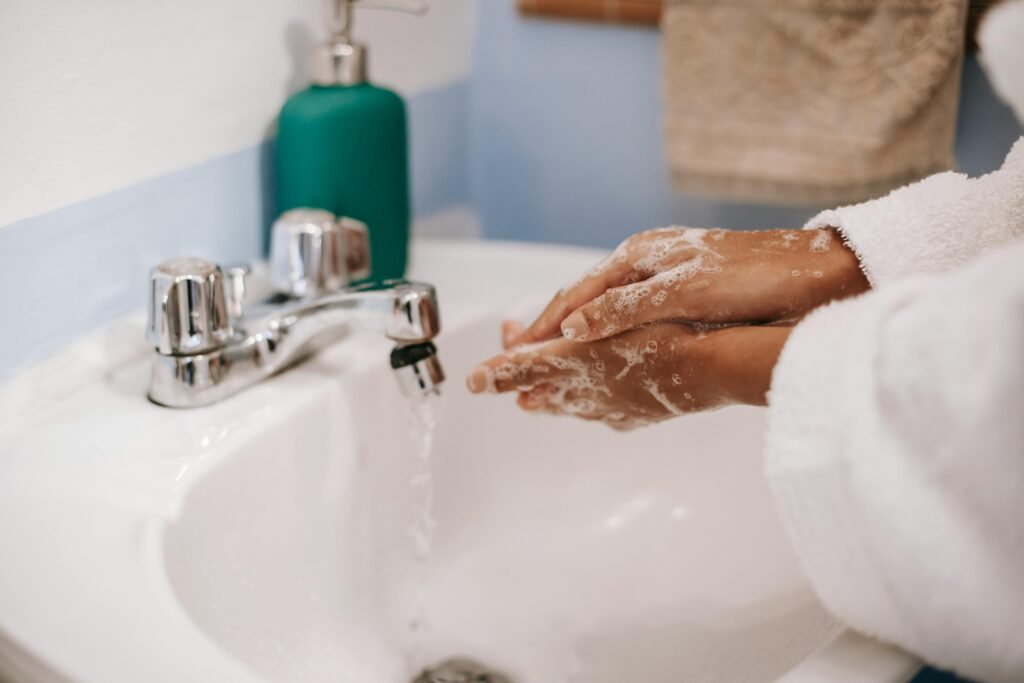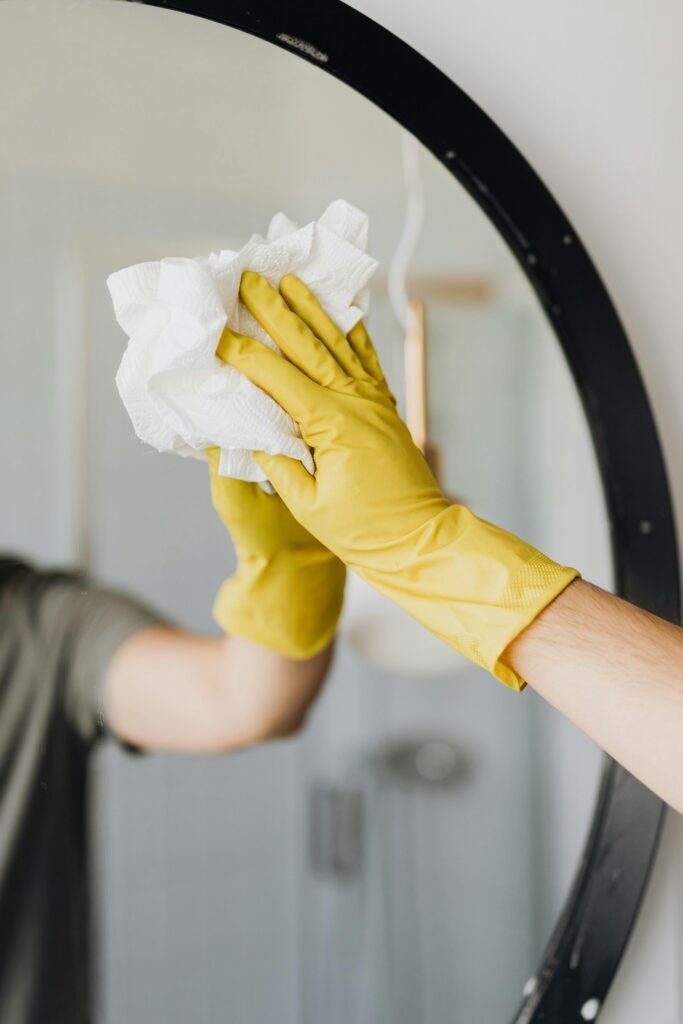The choice between an all-purpose cleaner and a bathroom cleaner depends on the type of surfaces you’re cleaning and the level of grime or bacteria you’re dealing with. Here’s a breakdown of each:
All-Purpose Cleaner:
- What It Is: A versatile cleaner designed to work on multiple surfaces, including countertops, tiles, sinks, and some floors.
- Best For:
- Everyday cleaning
- Light dirt, dust, and surface stains
- General use on countertops, cabinets, and mirrors
- Advantages:
- Can be used on a variety of surfaces.
- Gentle and non-abrasive.
- Great for quick touch-ups or regular maintenance.
- Disadvantages:
- May not be strong enough for tougher bathroom grime like soap scum or mildew.
Bathroom Cleaner:

- What It Is: A cleaner specifically formulated to tackle bathroom-specific messes like soap scum, hard water stains, mildew, and bacteria.
- Best For:
- Deep cleaning of the toilet, shower, and tub.
- Removing soap scum, mold, and mildew.
- Killing bacteria and viruses (some may have disinfecting properties).
- Advantages:
- More effective at cutting through grime and killing germs.
- Usually contains ingredients that are tougher on soap scum and mineral deposits.
- Ideal for deep cleaning sessions.
- Disadvantages:
- Can be more abrasive on delicate surfaces like marble or natural stone.
- Sometimes contains harsher chemicals, so proper ventilation is important.
Which One to Choose?

- For Routine Cleaning: An all-purpose cleaner is usually enough for wiping down surfaces like sinks, mirrors, and countertops.
- For Tough Bathroom Messes: Use a bathroom-specific cleaner for areas prone to soap scum, mold, and hard water stains, such as the tub, shower, and toilet.
If you prefer a more natural approach, you can use a mixture of baking soda and vinegar as a bathroom cleaner substitute, which works well for tackling grime and disinfecting.
